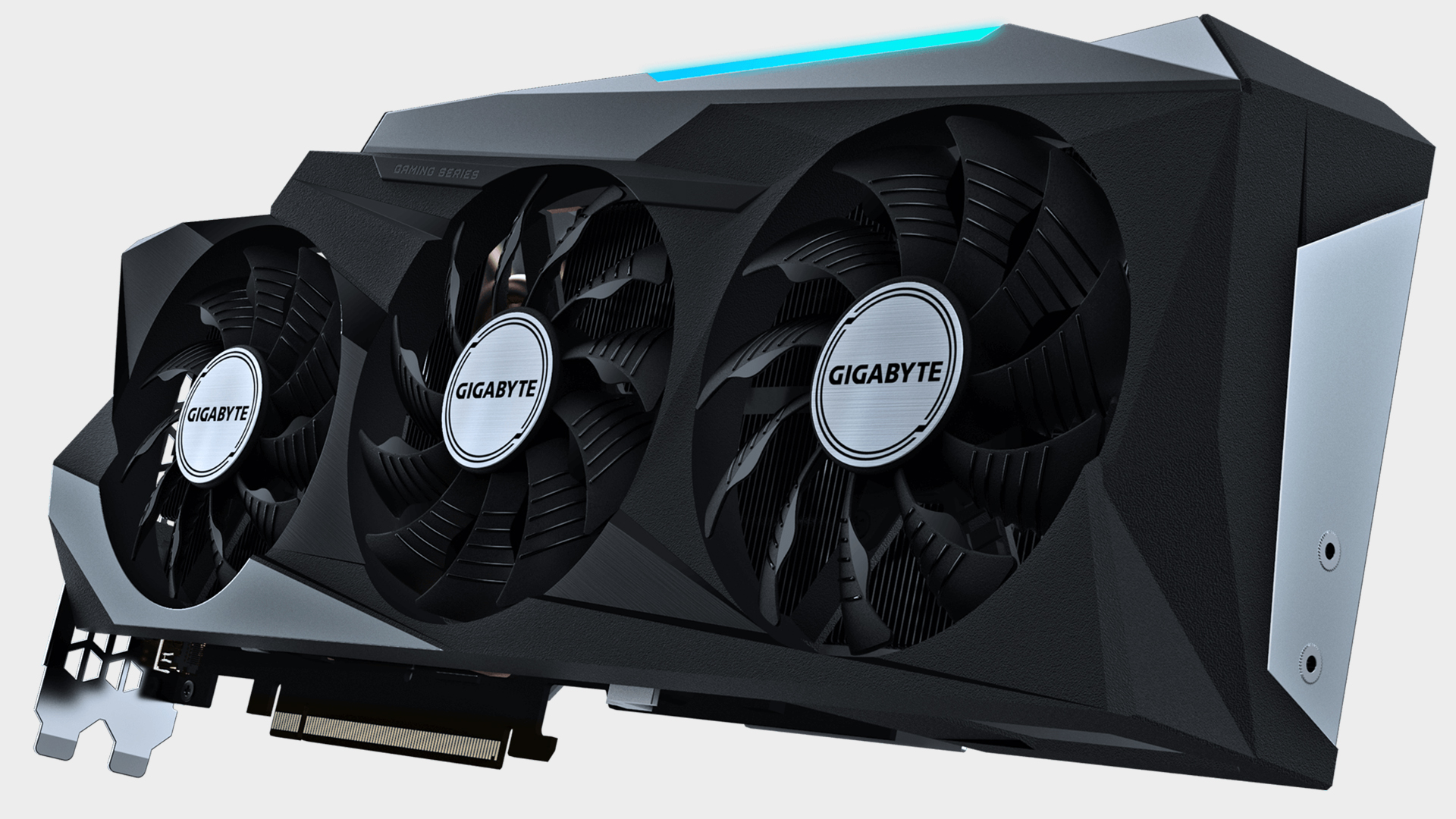GamesRadar+ Verdict
The RTX 3080 offers incredible value for money, providing 4K 60fps PC gaming at an RRP of almost half the last generation of cards. A must-buy for any serious PC gamer wanting a GPU upgrade.
Pros
- +
The best value for money card ever
- +
Can run almost any game at 4K60fps with ray tracing
- +
Makes 4K PC gaming realistic and more affordable
Cons
- -
Stock is incredibly hard to come by
- -
Rumours of a 3080 Super/Ti coming soon
Why you can trust GamesRadar+
When Nvidia revealed the latest 30-series of graphics cards, PC gamers everywhere rejoiced. While the 3070 offers 2080 Super-level performance for a significantly cheaper price, and the 3090 is the most powerful consumer-level GPU the world has ever seen; it was the 3080 that caused a big ruckus, sitting bang in the middle of the two and featuring some awesome new architecture and specs.
The 3080 really is the flagship of the three, aimed at those who want to play the latest and greatest games at a smooth 60fps in 4K. It's safe to say this is the biggest graphical leap we've seen in a long time; all three 30-series cards on launch have impressed - and the fourth, the 3060 Ti, when it joined the party too. While a 3090 packs incredible power, supporting up to 8K gaming potentially, a price tag of $1,499/£1,399 is still eye-watering. Meanwhile, you can get a 3080 for half that, at $699/£649. This is 4K gaming at an accessible price for the first time ever, and lists of the best graphics card across the internet have been significantly reshuffled because of this.
For this review, I didn't get my hands on a Founders Edition card direct from Nvidia – mine is the Gigabyte Gaming OC 3080, which is Gigabyte's flagship offering. This offers an extra 45MHz boost clock speed over the Eagle OC version and is one of the most reputable third-party brands you can get with any graphics card, not just the 3080.
Design & Architecture
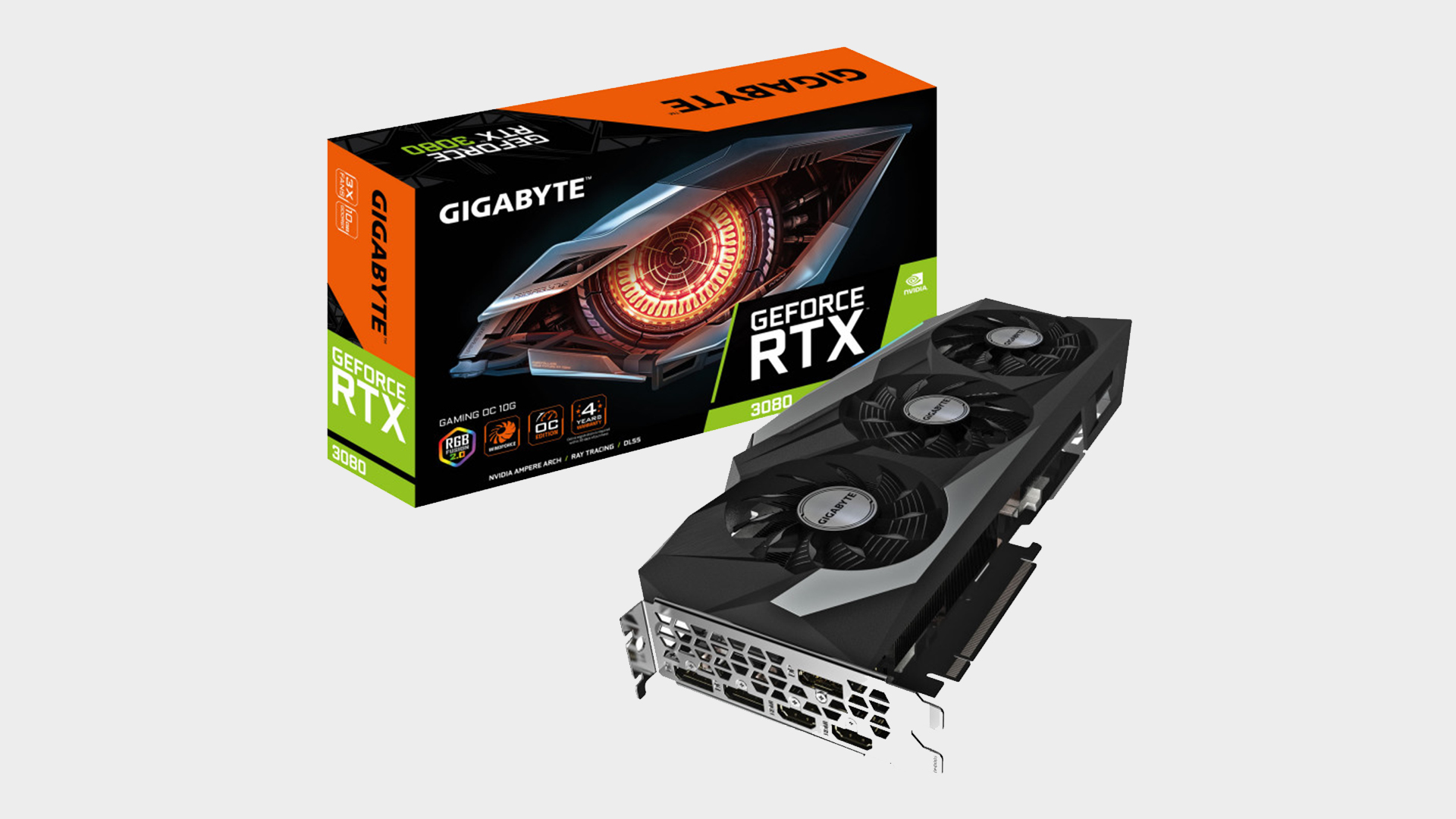
When it comes to the features and mechanics within the card, I could sit and talk about how the 3080 uses 2nd generation RM cores and 3rd generation Tensor Cores and when combined with the Ampere architecture and dual axial flow through thermal design make for a revolutionary experience, but at the end of the day, it's what these technical elements translate to in machine on a screen that's most important - and that's laid out plain and clear below.
There are a few important features to note though. GDDR6X memory is present for the first time ever, and the 3080 is packing 10GB of the stuff. This might not seem like loads on the face of it given that the 2080Ti offers 11GB GDDR6, but you only have to look at the benchmarks below to see the difference. Again, if you're upgrading from a 10-series card as I did, the difference will be like night and day.
One worry I personally had with upgrading from a 1070Ti to a 3080 is that the 30-series cards are, as you'd expect, significantly physically larger and heavier. If you have a mid-ATX case, however, you shouldn't have much to worry about; I'm rocking the CoolerMaster H500 and there was plenty of room, though GPU sag is a real concern. For ease of mind, a GPU bracket is recommended.
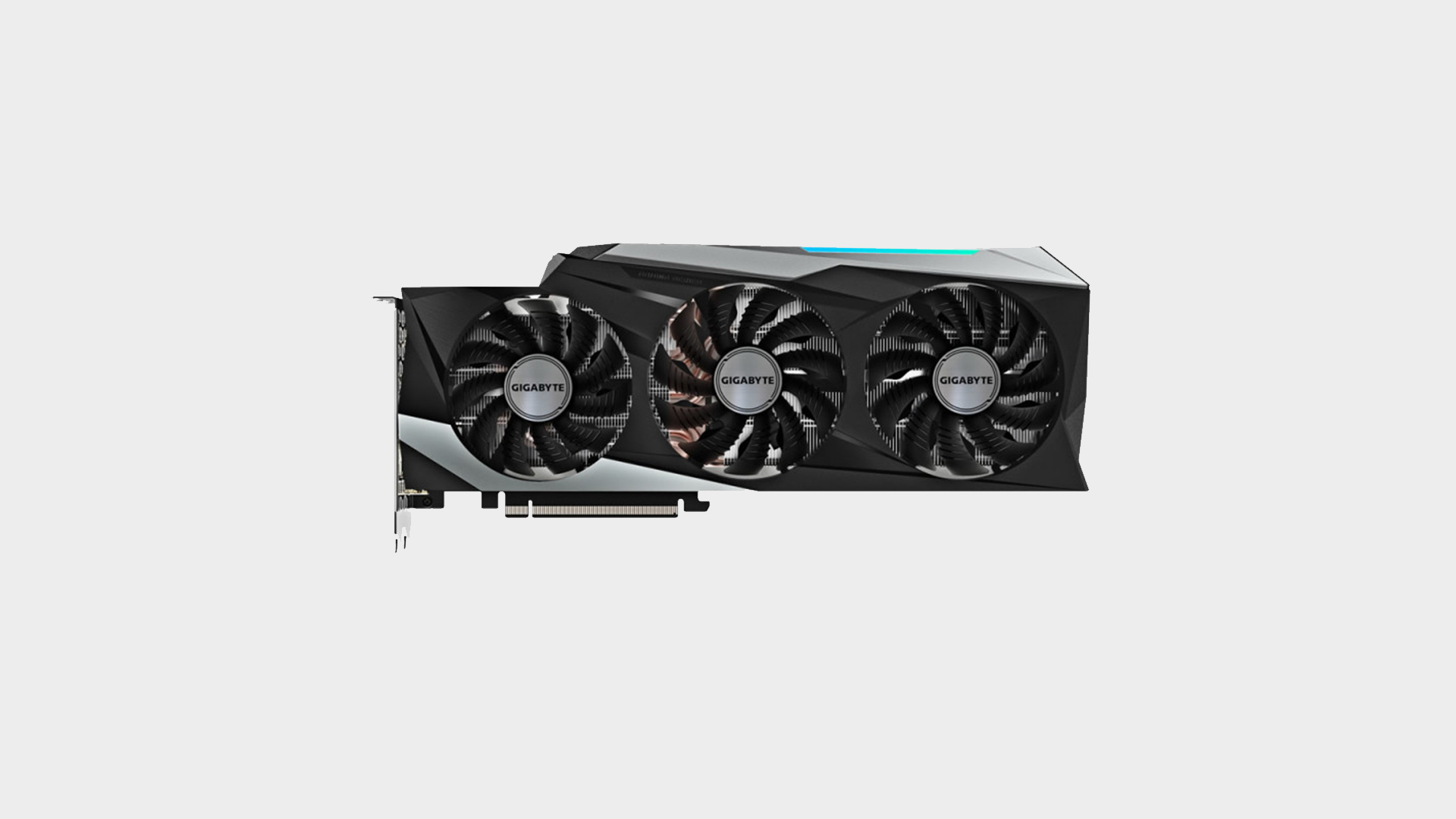
Performance & Benchmarks
CPU: i7-9700K @ 3.60GHz
RAM: 32GB
GPU: Nvidia RTX GeForce 3080
Motherboard: Aorus Z390 Pro
PSU: Corsair RM750X
Monitor: ASUS XG27U
For clarity, my upgrade was a big one. I went from a 1070 Ti to a 3080, skipping the 20-series generation entirely. At 1080p, my old GPU served me well, but RTX wasn't supported and with Cyberpunk 2077 right around the corner, I needed the upgrade. The difference is absolutely staggering.
As you can see from the benchmarks below, the 3080 – as expected – absolutely destroys the 1070Ti on all of the tests and games. At 1080p, you're looking at almost 100+ FPS across the board, while only Total War: Three Kingdoms struggles at 4K. If you want 4K 60fps gaming, this is the way forward - this performance would undoubtedly be augmented and enhanced by adding in the best CPU for gaming.
| Game (Setting) | 1070Ti (1080p) | 3080 (1080p) | 3080 (4K) |
|---|---|---|---|
| Metro Exodus (High/RTX) | 69/25 | 122/96 | 74/60 |
| Red Dead Redemption 2 (High/Ultra) | 55/19 | 121/107 | 79/63 |
| Shadow of the Tomb Raider (High/Highest) | 93/86 | 120/123 | 90/78 |
| Tom Clancy's The Division 2 (High/Ultra) | 93/70 | 131/119 | 86/65 |
| Total War: Three Kingdoms (High/Ultra) | 58/57 | 137/121 | 65/45 |
I've been using the 3080 throughout my 70+ hours in Cyberpunk 2077 and I've been nothing short of impressed. With the latest drivers, it can run at 4K with RTX on Ultra, and – as long as you set the DLSS to Performance, not Quality – it's a smooth 60fps all day long.
It truly is one of the best ways to experience Night City, which is one of the most beautiful and immersive environments in gaming. Having seen the game played on a console, along with testing it out without RTX lighting, the 3080 helps elevate it to a new level with gorgeous sunrays piercing through the cityscape and incredibly detailed textures, even if half of them are different types of dildo.
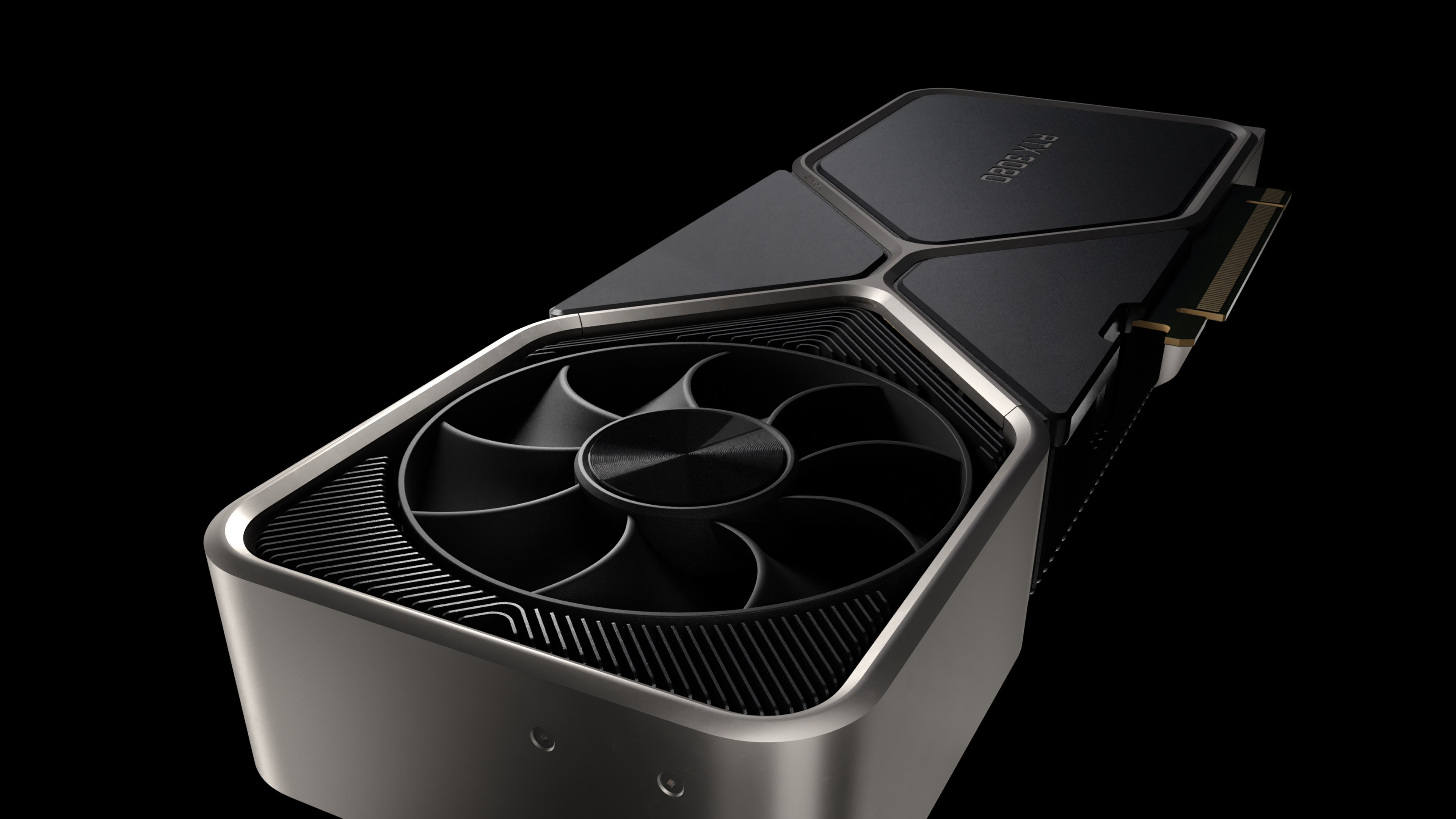
Over in Assassin's Creed Valhalla, while the game doesn't look quite as crisp as Cyberpunk 2077, the sun splitting the treetops and breath-taking vistas of the English countryside are something to behold. When playing the game on launch on my 1070Ti, I wasn't able to appreciate just how charming the world in that game is.
That's the story for pretty much every other game I've tested out too. I realise just how overkill it is since Valorant will play on everything from a gaming PC to a microwave, but clicking on heads was a buttery smooth delight. In another shooter, Rainbow Six Siege, it was the same: 4K resolution with everything on ultra, hitting 100+ frames per second at all time. I even got a 1v4 clutch, which I'm not saying is thanks to having a better graphics card, but I also can't remember pulling one off in Siege before then...
Over in the staple benchmarks from 3DMark, the Fire Strike Extreme result was an impressive 17,652, which is better than 96% of all results, while the Fire Strike Ultra result was similar – 10,092, better than 94%. When compared to the latest AMD Radeon cards, it falls a tiny smidge short of the RX 6800 XT, but not enough to be noticeable (50 pts in total).
Value
If you want the very best performance you can get from a gaming PC, get a 3090. If you can't afford to drop a grand and a half on a single component but still want the best performance possible from an Nvidia card, get a 3080. The only time it wouldn't be worth upgrading to a 3080 is if you're already on a 2080Ti. If you're at 1080p the 3070 will certainly suffice but if you can see yourself upgrading to 1440p or 4K within the next few years, picking up a 3080 should be your goal.
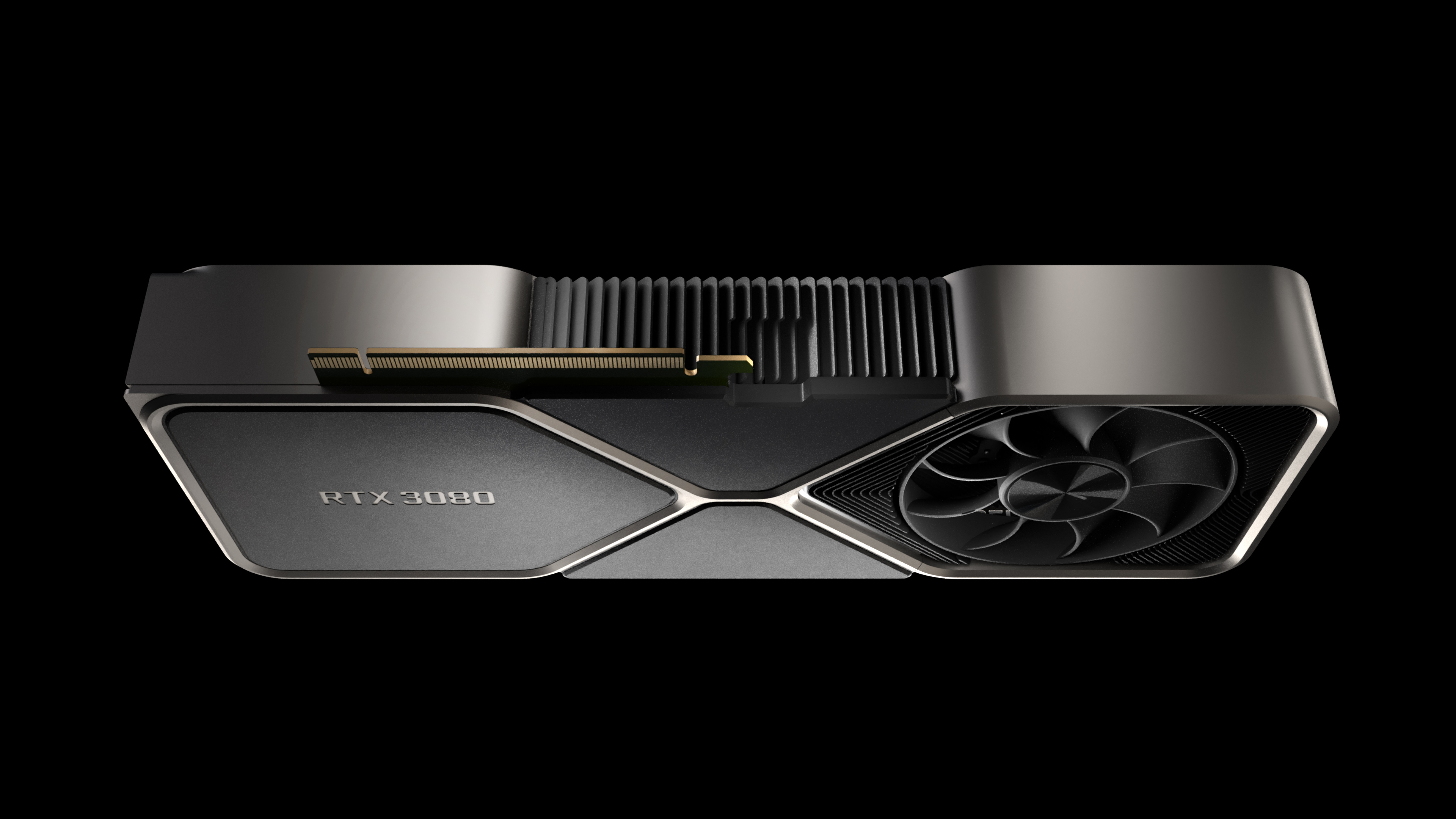
As mentioned above, comparing the 3080 to AMD's equivalent – the RX 6800 XT – you're looking at staggeringly similar results. Both cards are similarly priced and while UserBenchmark has the 3080 come out on top, the difference is negligible at these insanely high frame rates at 1080p. However, when you bring ray tracing into the fray, the 3080 blows AMD's competitor out of the water, offering almost double the frames.
As I'm in the UK, I forked out £799 for my Gigabyte Gaming OC 3080 – £150 more than the RRP for a Founders Edition. Is it worth the extra £150, which for most people will be a considerable amount? Probably not, but you'll be hard done by to get your hands on a Founders Edition right now, thanks to the severe stock shortages, and when you compare it to the 20 series RRP pricing on launch, that's when you realise just how good the value for money aspect is with the 3080. For the latest updates, check out our guide on where to buy RTX 3080 cards.
Overall
As it stands, I have zero complaints with my 3080, other than the fact it took me almost three months from my order on launch day to receive it. Since I stuck it in my rig, my PC gaming experience has been elevated to a new level, and while part of me wishes I went for a 3090 in the end, dropping almost double the cost of the 3080 on a slightly better card wouldn't have been smart.
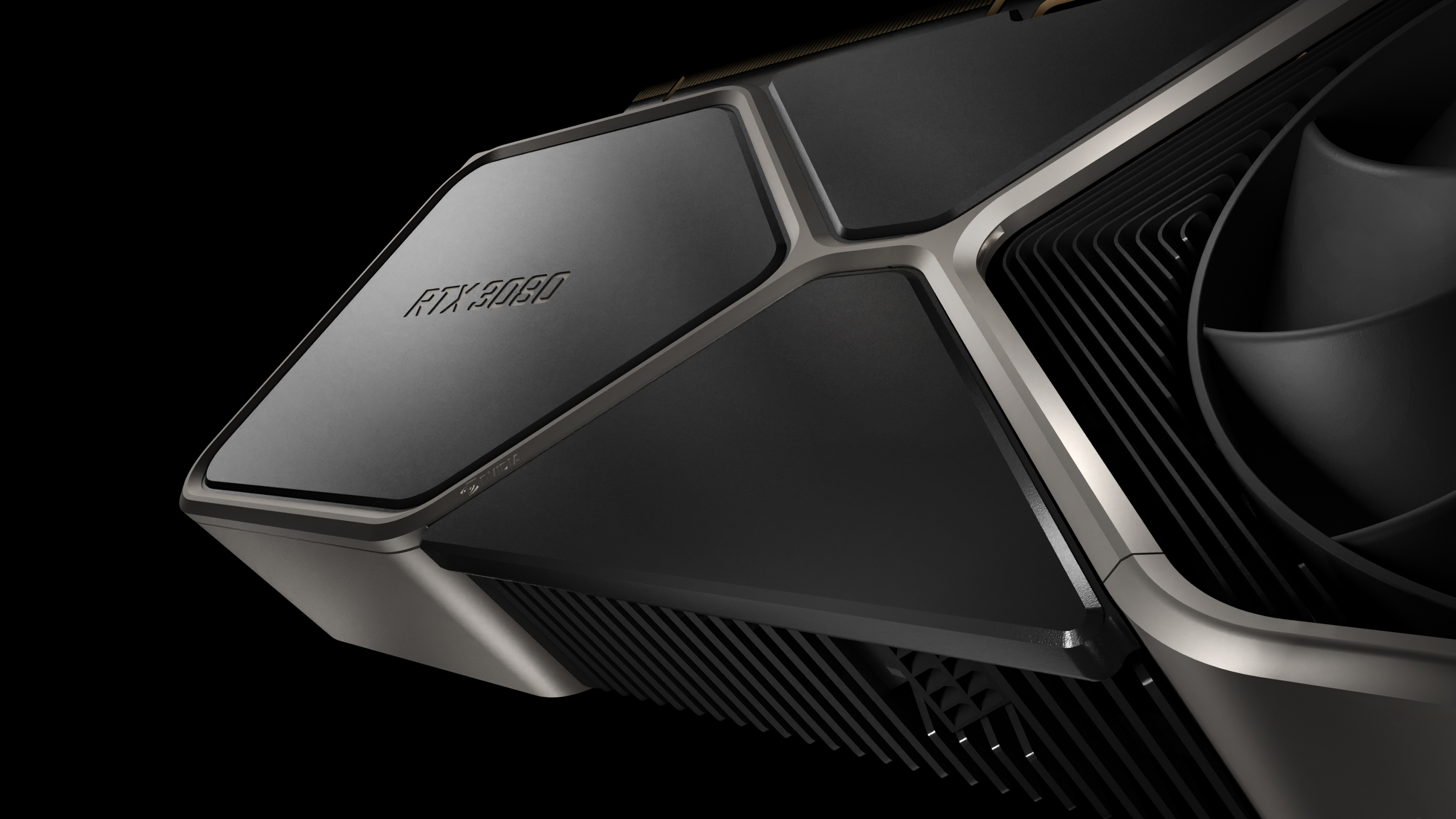
If you have a 2080 Ti, I'd advise you not to bother with a 30 series upgrade, simply because the 2080 Ti is still an absolute beast. If you've got anything less than that and you want to play all of the best games from 2020 and the hottest ones to come in glorious 4K, get your wallet out because a 3080 upgrade – or 3090 if you can afford it – is a seriously smart investment. The only downside, although it's only rumours and not confirmed yet, is the potential existence of Ti/Super versions of both the 3080 and 3090 coming in 2021. Take it with a pinch of salt, but if they turn out to be true and your PC is still capable of running powerful games at a decent framerate and quality right now, you may want to hold out.
With that said, a 3080 purchase today will last you for the next three to four years at a minimum - and makes getting the most out of one of the best 4K monitor for gaming - truly - a genuinely achievable, beautiful thing.
Give me a game and I will write every "how to" I possibly can or die trying. When I'm not knee-deep in a game to write guides on, you'll find me hurtling round the track in F1, flinging balls on my phone in Pokemon Go, pretending to know what I'm doing in Football Manager, or clicking on heads in Valorant.

